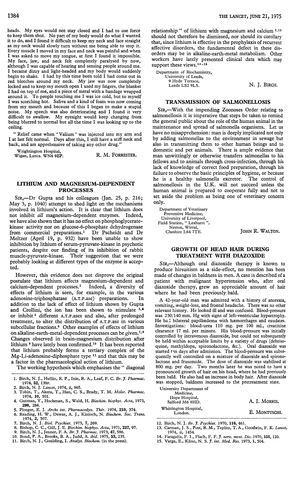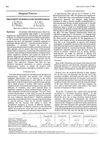Growth of Head Hair During Treatment with Diazoxide
June 1975
in “
Lancet
”

TLDR A bald man grew hair on his head after taking a drug called diazoxide, but lost it again when he stopped the medication.
The document reports a case where a 42-year-old male patient with malignant hypertension experienced significant hair growth on his head after being treated with oral diazoxide, a drug known to cause hirsutism as a side effect. The patient, who had been bald prior to the treatment, was initially controlled with intravenous diazoxide and later maintained on a combination of oral diazoxide, spironolactone, and frusemide, with a stabilized dose of diazoxide at 800 mg per day. Two months into the treatment, a pronounced growth of hair on his previously bald head was observed, along with an increase in body hair. However, after discontinuation of diazoxide, the patient's baldness returned to the pretreatment state.



